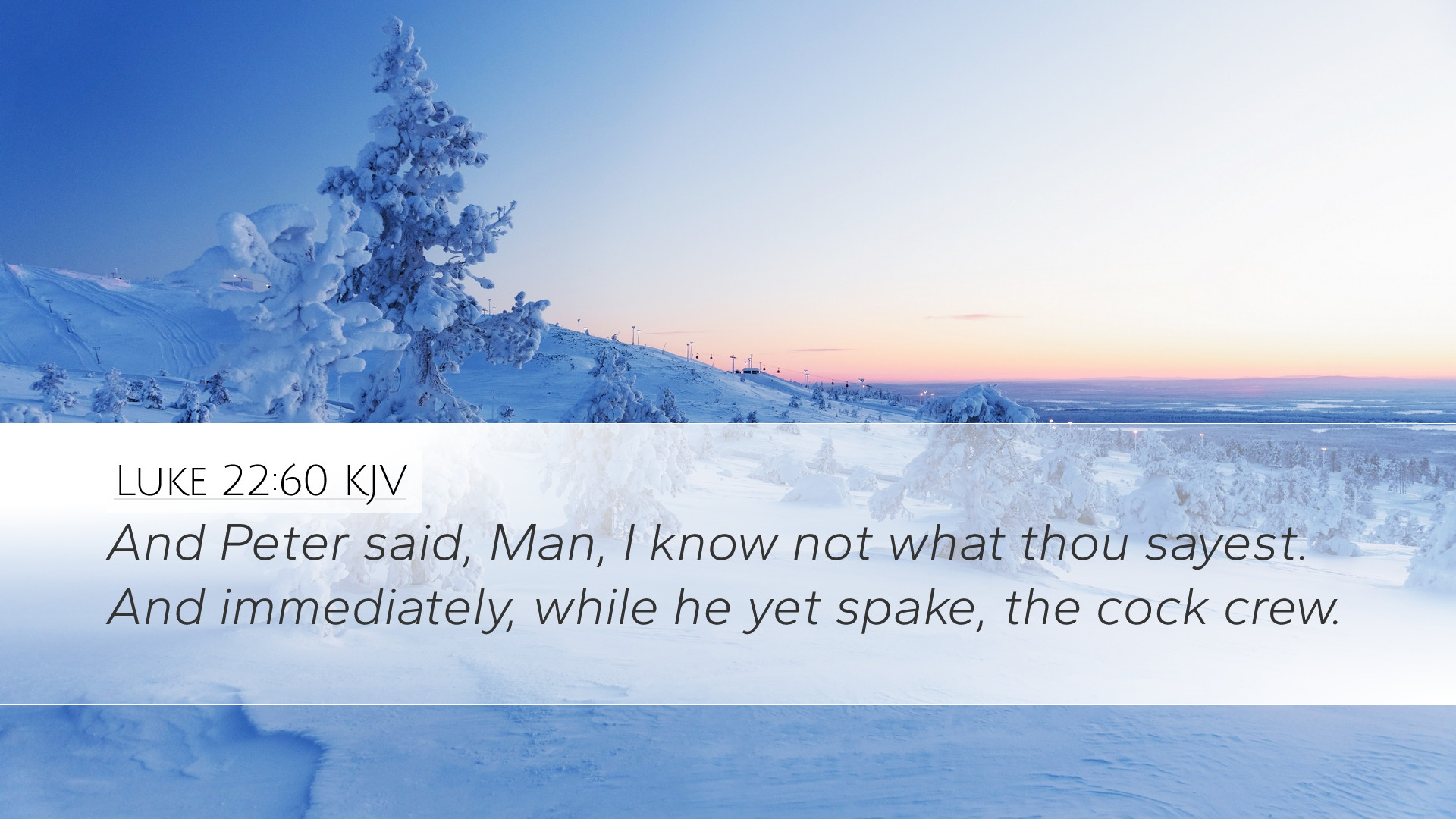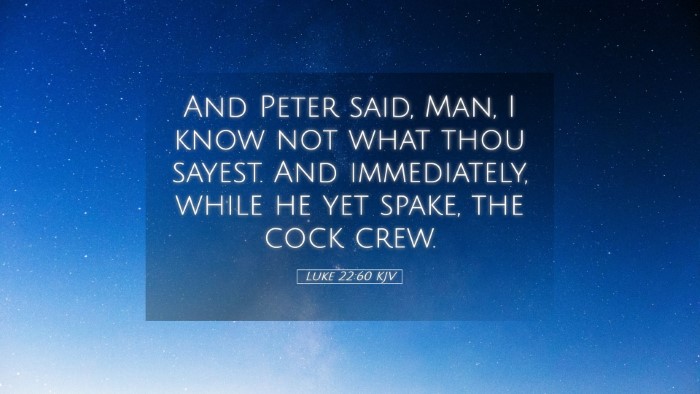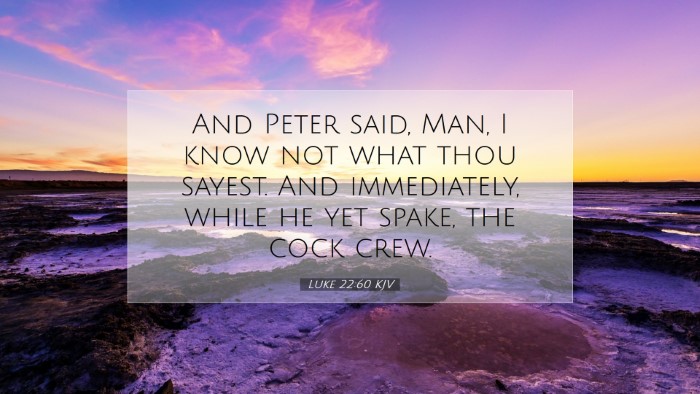Commentary on Luke 22:60
Luke 22:60 states: "But Peter said, 'Man, I do not know what you are saying!' Immediately, while he was still speaking, the rooster crowed." This verse occurs in the context of Peter's denial of Jesus, an event filled with both emotional gravity and theological significance. In our exploration of this passage, we will draw from the insights of esteemed public domain commentaries to illuminate its meaning for modern believers.
Contextual Background
Prior to this verse, Jesus has been arrested and taken to the high priest's house where he faced ridicule and abuse. Peter was standing by, warming himself by the fire, when he was questioned about his association with Jesus. This moment forms a crucial part of the passion narrative where Peter, a previously steadfast disciple, succumbs to fear and pressure.
Commentary Insights
Peter's Denial
Matthew Henry points out that Peter's denial marks a pivotal moment in the narrative of the Gospels, representative of the frailty of human resolve. As he faced accusations from those around him, Peter's fear overtook his loyalty:
- Fear of Repercussion: Peter’s fear of sharing in the sufferings that Jesus faced led him to deny the truth of his discipleship.
- The Crowing of the Rooster: The rooster’s crow was a profound reminder of the prophecy Jesus gave earlier that night, serving as an instantaneous moment of realization for Peter.
Theological Implications
Albert Barnes elaborates on the theological ramifications of Peter's denial, emphasizing that it reveals the dual nature of human weakness and divine foreknowledge:
- Human Inclination to Fail: This event illustrates the tendency of even the most devoted followers to falter when confronted with fear and danger.
- Divine Foreknowledge: Jesus predicted Peter's denial, showcasing God’s omniscience and the unfolding of His plan through human frailty.
Peter's Moment of Crisis
Adam Clarke underscores that this moment also represents a crisis of identity for Peter. He was not just denying Jesus; he was denying who he was as a follower of Christ:
- Identity Crisis: Peter’s denial provokes a deeper existential question about who we are in moments of crisis. Are we willing to stand firm in our identity as believers, even when faced with potential ostracism?
- Symbolism of the Rooster: The rooster serves as a symbol of awakening; much like it heralds the dawn, Peter's denial leads him towards eventual restoration.
Applications for Believers
This passage, particularly Luke 22:60, provides several vital lessons for the church today:
- The Reality of Failure: Believers must acknowledge that failure is part of the Christian journey. Peter’s story reminds us that even the most devout can falter.
- Grace and Restoration: Just as Peter was later restored and commissioned by Jesus, we too can find forgiveness and purpose after our failures.
- Watchfulness in Trials: This incident calls us to be vigilant in our faith, encouraging us to prepare our hearts and minds so that we might not falter when challenges arise.
Conclusion
Luke 22:60 serves as a reflection of the complexities of faith, identity, and human frailty. Through the insights derived from public domain commentaries, it becomes evident that this verse is not merely a historical account but a timeless lesson on the nature of discipleship. As believers, we are beckoned not only to witness Peter's failure but also to understand the profound grace that follows, illustrating the restorative heart of the Gospel.


